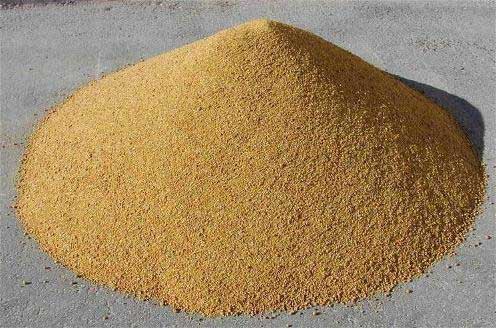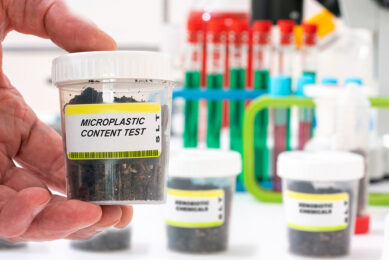€1.8m injection into high value protein feeds research project

A three project aimed at producing a high protein supplement that can be used in diets for pigs and poultry, and to reuse the hydrolysed cellulose and hemicelluloses in either anaerobic digestion or within the fermentation process to further increase ethanol yield, has recieved funding of €1.8m.
The UK government-backed Technology Strategy Board has awarded a grant a consortium of five UK companies, led by AB Agri and including The Institute of Food Research, Ensus, Vireol and ADAS. In total the project is worth over €1.8m over three years and the Technology Strategy Board is contributing half to the project.
The project will build on work started by Dr Peter Williams of AB Agri, to develop a product called ‘Yeast Protein Concentrate’ (YPC) which is derived from the co-product streams of bioethanol production, otherwise known as DDGS. This product is produced by processing and recovering the spent yeast in the bioethanol co-product stream to produce a valuable high protein supplement that can be used in a wide range of specialist animal feeds including feed for fish. The valuable proteins generated and found in the co-products have the potential to substantially reduce the need for the importation of foreign feed protein supplements and could also help contribute to the UK’s self sufficiency in feed protein. YPC, the team’s first product is already in the pilot phase of production and the business is actively seeking other bioethanol partners across Europe with which they could partner.
The Technology Strategy Board grant award will fund further process development for the YPC project but will primarily fund research into methods of separating the fibre from the protein in DDGS. The exploitation of DDGS as a feed supplement under certain circumstances can be limited by the presence of high levels of insoluble dietary fibre. The success in developing a method to recover a high protein but low fibre product from DDGS will further increase the nutritive and economical value of bioethanol derived co-products within the animal feed industry.’
Dr Williams said “The UK relies on imported Protein concentrates to support meat production through the feeding of livestock. If successful the project will contribute to reducing the UK’s reliance on imported proteins such as Soya Bean Meal.” He continued “What we also aim to do is to improve even further the sustainability of first generation Bioethanol production by increasing the value of the co-product, increasing the versatility of the co-product for animal feed production and capturing a greater proportion of the available energy from the feedstock”.











